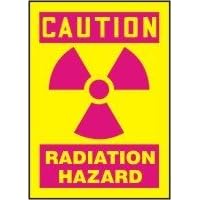October is Breast Cancer Awareness Month
Posted in CSA, Education, Health & Medicine on September 24th, 2009First off, I found this Breast Cancer Awareness PSA hilarious. But it’s raising eyebrows everywhere and there are many who feel it is too sexy to be on TV and sends the wrong message. I want you to watch it and see for yourself:
It’s about time the giggle factor be used to heighten awareness. Let’s face it breasts are used to sell everything from cars to computers to guns to sailboats–if it’s for sale they drape a scantily clad women over it. Sex sells as the saying goes and sex is personified in boobs. I’ve never been able to understand how we manage to get so caught up in two lumps of fatty tissue that also contain milk ducts–but it’s that societal emphasis on the breasts that keep many people from touching their own breast to learn how they feel so they can recognize changes in the tissue. It’s fear of losing a breast that cause some women to ignore lumps and pretend everything is fine when they know deep down it is not fine.
I’m a breast cancer survivor. My mother had breast cancer and so did my uncle. My mother is also a survivor, but my uncle died of complications of the treatment for his breast cancer. It’s not just women who get breast cancer but it’s women that the awareness ads and Breasat Cancer Awareness Month focuses on.
Each year 182,000 women are diagnosed with breast cancer. Each year 20,000 women die of breast cancer. The key is to recognize the symptoms and get treatment early. For women that means breast self-exams and regular mammograms or MRIs.
Breast cancer in men is something most men don’t want to talk about but you can learn about symptoms, causes, and risks. While breast cancer is rare in men, it does happen so if you’re male and have a lump in your breast area, get it checked out. The survival rates for men are similar to the survival rates in women with breast cancer in the same stage. The problem is that since breast cancer is so rare in men, when it is found it’s usually fairly advanced — when in doubt check it out.
I don’t want anyone to die of breast cancer. It’s treatable when found early and the survival rates are rising each year. Educate yourself about your family history of breast cancer. Be aware of your own body and the changes that occur as you age — what’s natural and what doesn’t seem right. If you have doubts ask your doctor if this is a normal change in tissue or should it be checked out.
Meanwhile, I still find this PSA hilariously funny. I hope it does make young people aware of the danger their boobs could be in if they don’t do self-exams, see their doctor regularly, and have mammograms at the proscribed intervals.
Do you think this type of public service announcement is helpful or harmful? Would you remember it?






